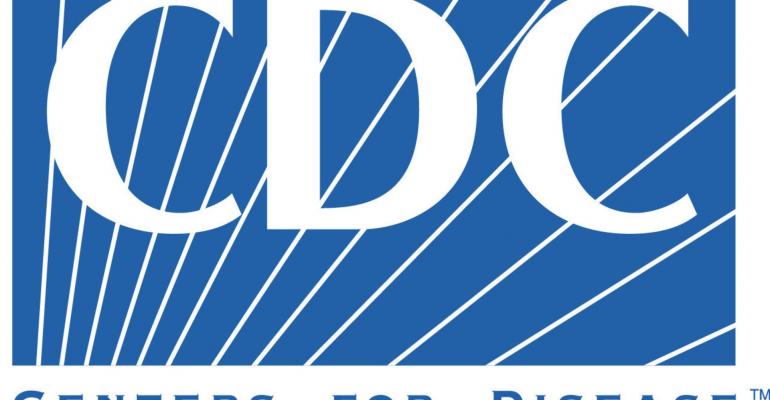This had been foreshadowed in a report by Axios that said the White House overruled CDC director Robert Redfield, who had argued for an extension through February.
Stern warnings
CDC's one-month extension came with stern warnings: 'Recent outbreaks on cruise ships overseas provide current evidence that cruise ship travel continues to transmit and amplify the spread of SARS-CoV-2, the virus that causes COVID-19 — even when ships sail at reduced passenger capacities — and would likely spread the infection into US communities if passenger operations were to resume prematurely in the United States.'
3,689 cases or suspected cases and 41 deaths
The agency added that cumulative surveillance data reported to CDC from March 1 through Sept. 29 showed at least 3,689 COVID-19 or COVID-like illness cases on cruise ships in US waters, in addition to at least 41 reported deaths. During a large part of this period, the ships were not in service and carrying only crew.
'We recognize these numbers are likely incomplete and an underestimate,' the agency added.
CDC outlined a number of challenges that it said highlight the need for further action before cruise ships can safely resume passenger operations.
'Recent passenger voyages in foreign countries continue to have outbreaks, despite cruise ship operators having extensive health and safety protocols to prevent the transmission of SARS-CoV-2 on board and spread to communities where passengers disembark,' CDC said. 'When health and safety protocols were apparently observed, resuming passenger operations significantly burdened public health authorities by creating the need for additional SARS-CoV-2 testing, isolation of infected travelers, contact tracing and quarantine of exposed people.'
It went on: 'The continued spread of the COVID-19 pandemic worldwide, risk of resurgence in countries that have suppressed transmission, ongoing concerns related to restarting of cruising internationally and need for additional time to assess industry measures to control potential SARS-CoV-2 transmission on board cruise ships with passengers without burdening public health, support continuation of the no-sail order at this time.'
'Increased risk in crowded spaces'
CDC cautioned: 'On cruise ships, passengers and crew share spaces that are more crowded than most urban settings. Data show that when only essential crew are on board, ongoing spread of SARS-CoV-2 still occurs. If unrestricted cruise ship passenger operations were permitted to resume, passengers and crew on board would be at increased risk of SARS-CoV-2 infection and those that work or travel on cruise ships would place substantial unnecessary risk on healthcare workers, port personnel and federal partners,' for example, Customs and Border Protection and the US Coast Guard, 'and the communities they return to.'
Cruise line protocols
Cruise lines large and small have adopted health safety protocols, often in partnership with noted public health experts in order to resume service in Europe, Taiwan, the Arabian Gulf and French Polynesia. There have been some reported cases with but generally not the outbreaks that happened earlier in the pandemic. An exception, Hurtigruten's Roald Amundsen, came after the line said it failed to live up to its own protocols.
Recently the Healthy Sail Panel of experts assembled by Royal Caribbean Group and Norwegian Cruise Line Holdings put forth a layered approach of 74 recommendations aimed at safely resuming operations. And Cruise Lines International Association announced several steps, including universal testing of passengers and crew, that would be mandatory for all its member lines sailing to/from the US.
Lines that resumed operations have done so at reduced occupancy.
More time needed to assess
CDC acknowledged the Healthy Sail Panel, along with efforts by Carnival Corp. & plc and MSC Cruises, but said 'It is too early to assess whether these initiatives will produce a viable set of policies and practices that will mitigate the spread of COVID-19 on board cruise ships while minimizing the potential burden and need for public health responsibilities.'
The agencey said it received almost 13,000 comments during its recent request for public information in the Federal Register. 'In light of the number of submissions and high level of public interest, additional time is needed,' CDC said, for it to 'review these comments, which may be used to inform future public health guidance and preventive measures relating to travel on cruise ships.'
The CDC order applies to cruise ships with the capacity to carry at least 250 passengers in waters subject to US jurisdiction.
The agency's full 29-page reasoning for its order extension is here.
CLIA looks forward to a 'productive dialogue'
In response to the extension, CLIA expressed its confidence in the ability to resume operations from US ports in a 'responsible, phased-in manner. Our actions will build off of the continued success the cruise industry has experienced with recent sailings in Europe and other parts of the world, as well as the guidance we have received from some of the world’s leading experts in medicine and science,' the association said.
'We look forward to engaging in a thoughtful and productive dialogue with our partners and regulators in the United States to return to cruising in the region.'
Third extension
This is the third time CDC has extended the no-sail order. The first was instated March 14 for 100 days. On July 16, the agency signaled it would extend the order through September.
Already in early August, CLIA had stretched its voluntary pause for US-based operations through October.
Copyright © 2024. All rights reserved. Seatrade, a trading name of Informa Markets (UK) Limited.
Add Seatrade Cruise News to your Google News feed.  |

